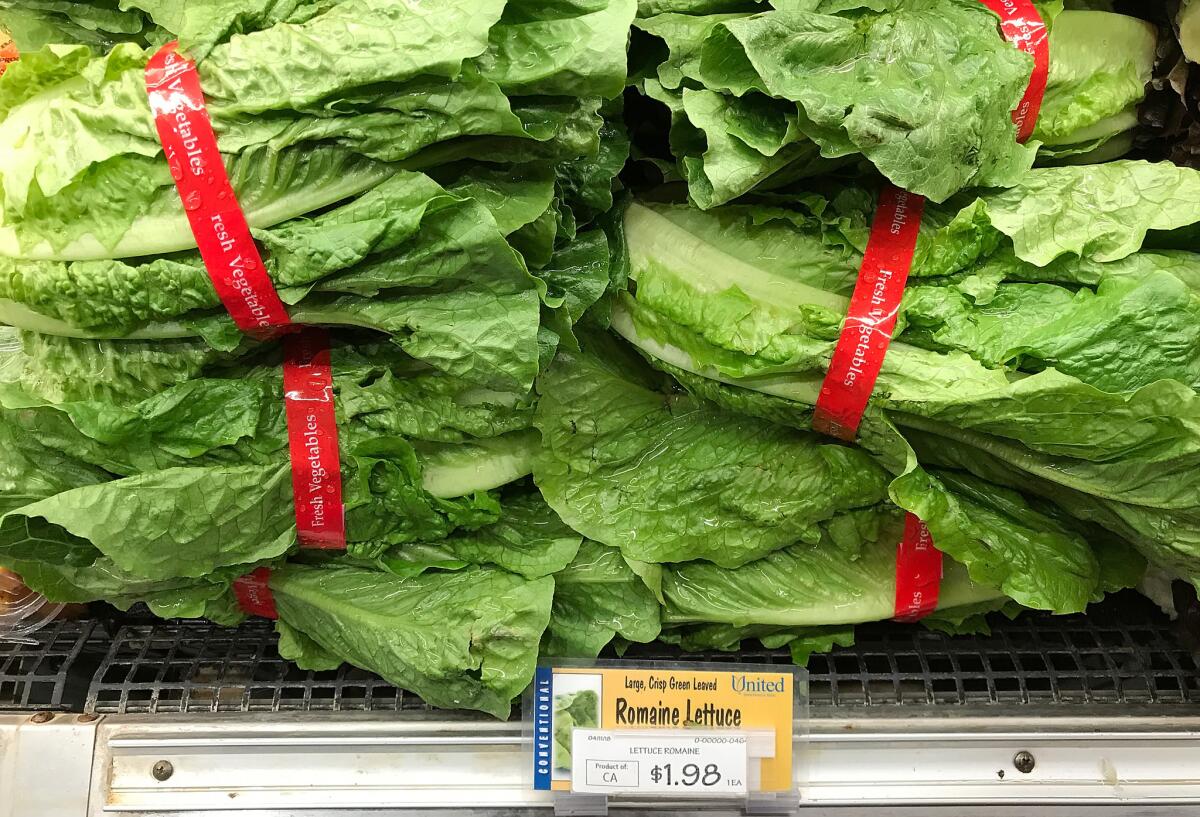By the way, 23 people got sick from tainted romaine, FDA reveals

Federal food safety authorities dropped a Halloween surprise Thursday: 23 people in 12 states were sickened by fecal bacteria traced to romaine lettuce between July and early September.
The Food and Drug Administration said in its news release that it did not publicly disclose the E. coli outbreak because suspect produce was no longer available to consumers when the U.S. Centers for Disease Control and Prevention determined it was a possible culprit in mid-September.
âThe FDA and the U.S. Centers for Disease Control did not identify actionable information for consumers during this investigation. Additionally, when romaine lettuce was identified as the likely source of the outbreak, the available data at the time indicated that the outbreak was not ongoing and romaine lettuce eaten by sick people was past its shelf life and no longer available for sale.â
Illnesses occurred between mid-July and early September in California, Arizona, Florida, Georgia, Illinois, Maryland, North Carolina, Nevada, New York, Oregon, Pennsylvania and South Carolina. No deaths were reported, and 11 people were hospitalized.
Neither agency returned emails and calls Friday.
Nearly all food-borne illnesses follow the same pattern cited Thursday by the agencies â in which much or all of the affected product is off the shelves before authorities can conclusively link it to an illness, said food-safety litigator William Marler.
That makes the FDAâs reasoning for the delay in disclosure seem âdisingenuous,â he said.
âThe public has a right to know,â Marler said. âWe pay their salaries.â
E. coli contamination has plagued the lettuce industry in California and Arizona for several years.
Last year, five people died and more than 200 were sickened in the worst multistate E. coli outbreak in a decade. The bacteria strain was traced to a cattle feedlot near Yuma, Ariz. A second outbreak that sickened more than 50 people in multiple states was linked to romaine lettuce from Californiaâs Central Coast. The incidents drew pledges from FDA to more closely monitor produce from the California-Arizona winter growing regions.
More to Read
Inside the business of entertainment
The Wide Shot brings you news, analysis and insights on everything from streaming wars to production â and what it all means for the future.
You may occasionally receive promotional content from the Los Angeles Times.











